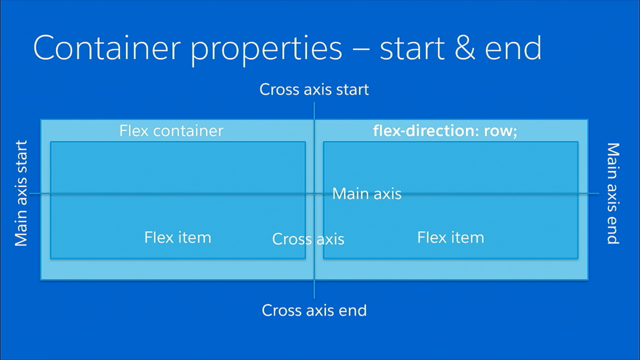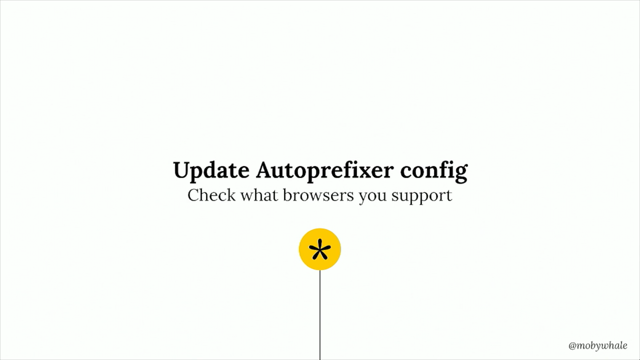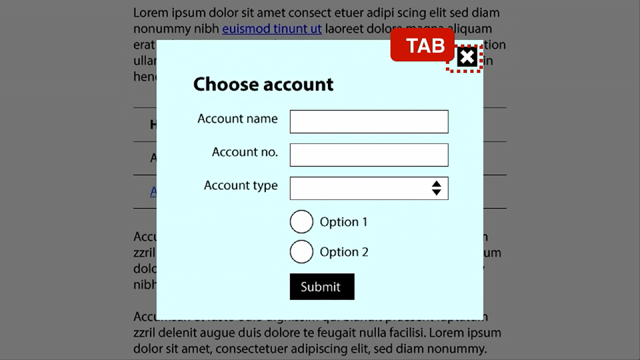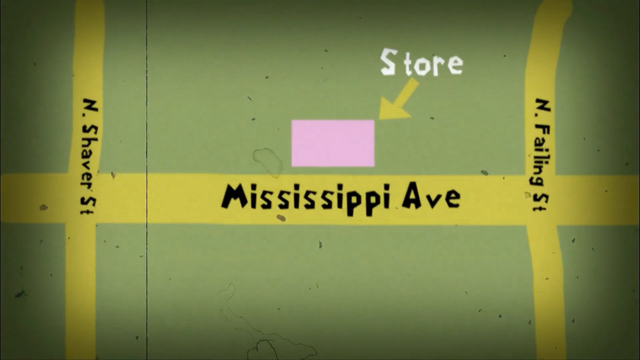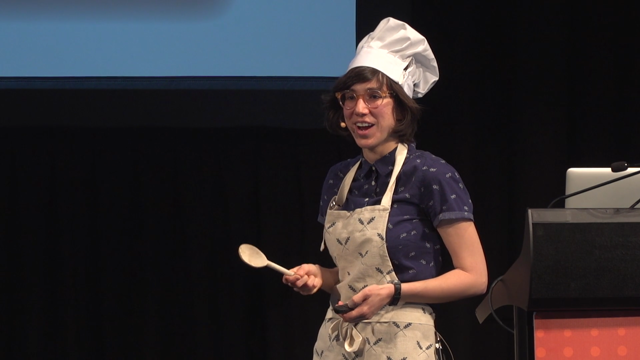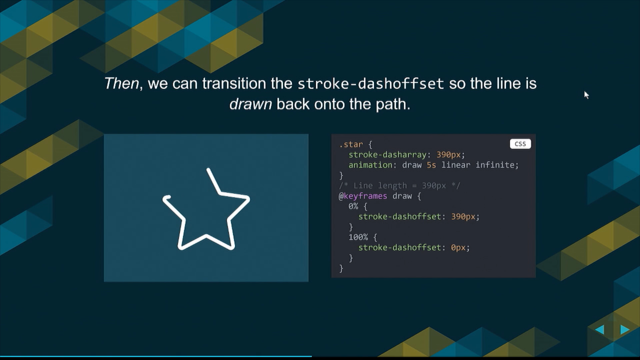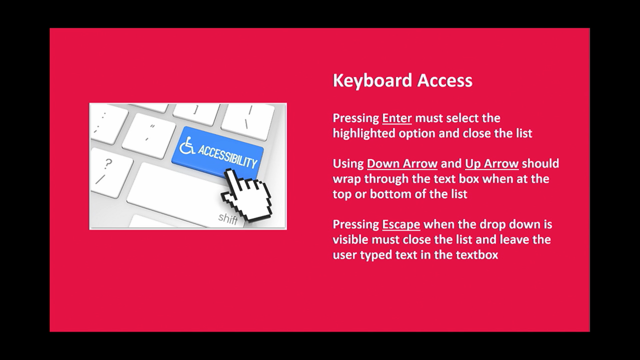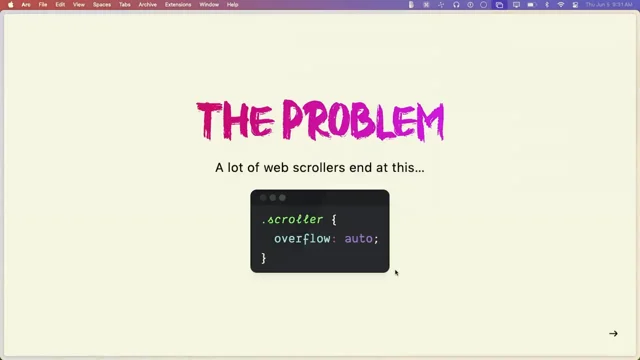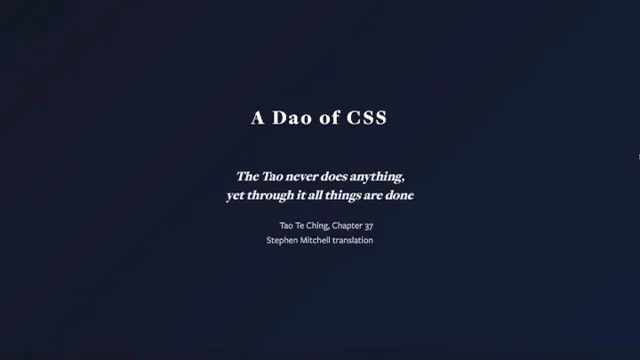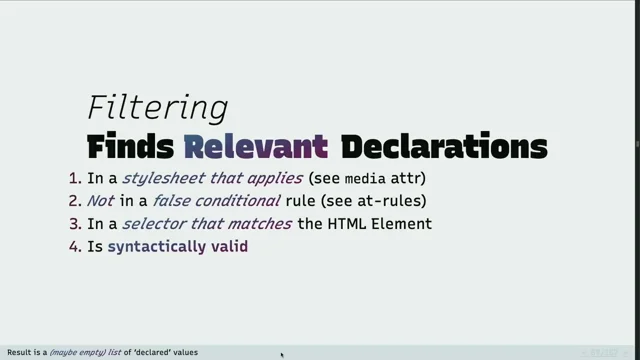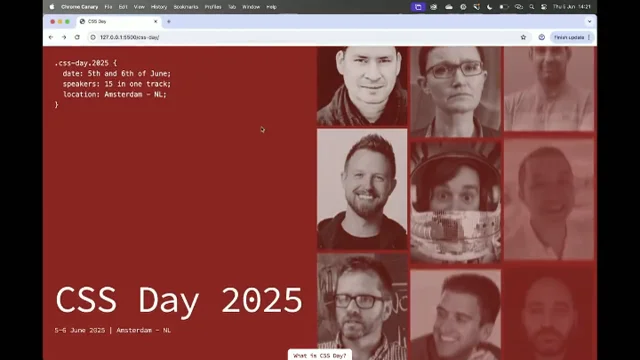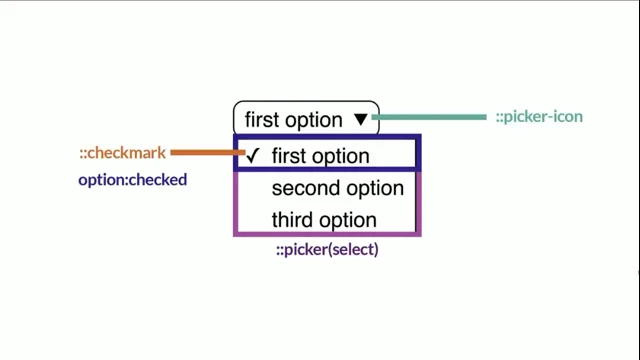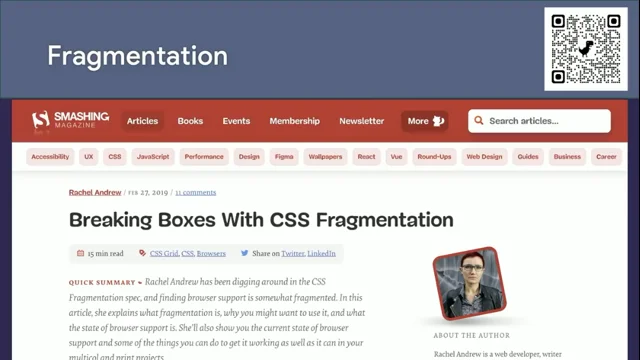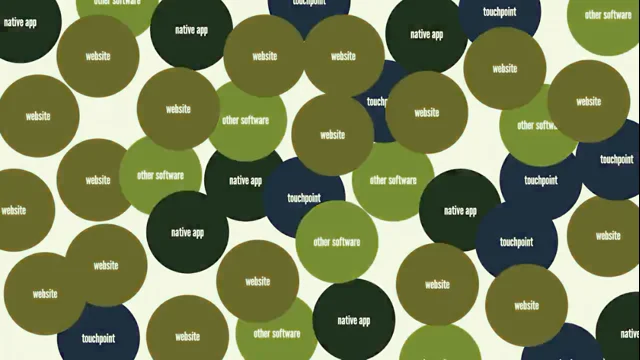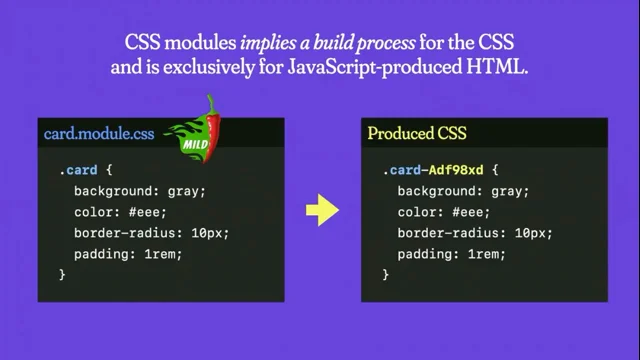The goose and the common

Introduction and Speaker Anecdotes
The speaker begins with a light-hearted introduction, referencing movie tropes and humorously describing Bruce as a charismatic hero. They reminisce about the browser wars, highlighting Bruce's involvement in open web advocacy and his current role at Vivaldi. The introduction sets a playful tone, mentioning Bruce's social media presence and his unique connection with Sir Tim Berners-Lee.
Bruce's Background and Humor
Bruce introduces himself with humor, expressing his love for HTML despite its perceived obsolescence in the face of modern technologies like React. He shares a comedic anecdote about obtaining a rat tickling certification, illustrating his penchant for quirky pursuits. Bruce's self-deprecating humor and candid style set the stage for a talk that blends technical insights with personal anecdotes.
The Goose and the Common: Historical Metaphor
Bruce introduces the metaphor of "The Goose and the Common," drawing parallels between historical land enclosures and the current state of the web. He describes how the web, once a shared resource, has been enclosed by big tech companies, limiting access and control. This segment sets the thematic foundation for the talk, highlighting the loss of the web's open nature and the impact on users.
Big Tech's Impact on the Web
Bruce discusses the influence of big tech companies on the web, emphasizing their role in monitoring users and shaping ideologies. He critiques the commodification of user engagement through enragement and the ethical concerns surrounding AI and data usage. This segment underscores the challenges posed by corporate control over web technologies and user data.
Global Web Inequality
Bruce highlights the disparities in web access and technology between developed and developing regions. He discusses the dominance of Android in less affluent areas and the challenges of high data costs and low connectivity. This segment emphasizes the need for inclusive web technologies that cater to diverse global audiences, advocating for apps that are accessible to all users regardless of their circumstances.
Progressive Web Apps: A Solution
Bruce introduces Progressive Web Apps (PWAs) as a solution to the challenges of app accessibility and inclusivity. He explains the benefits of PWAs, including their ability to function across devices without gatekeepers, and their smaller size compared to traditional apps. This segment positions PWAs as a key technology for maintaining an open and accessible web.
Apple's Restrictions and the Fight for Web Equality
Bruce critiques Apple's restrictions on web technologies, particularly their limitations on PWAs and browser engines on iOS. He describes the efforts of Open Web Advocacy to challenge these restrictions and promote web equality. This segment highlights the ongoing struggle against corporate control and the push for a more open web ecosystem.
Open Web Advocacy and Regulatory Efforts
Bruce discusses the formation of Open Web Advocacy and their mission to end Apple's browser restrictions and promote web app equality. He shares their interactions with regulatory bodies like the UK's Competition and Markets Authority and the EU, illustrating the impact of advocacy on policy changes. This segment underscores the importance of collective action in challenging monopolistic practices.
Regulatory Wins and Apple's Response
Bruce details the successes of Open Web Advocacy, including influencing regulatory bodies to address Apple's browser restrictions. He describes Apple's initial resistance and eventual concessions, highlighting the power of advocacy in effecting change. This segment demonstrates the potential for regulatory frameworks to promote a more open and competitive web environment.
Apple's Concessions and the Role of Regulation
Bruce explains how regulatory pressure led Apple to reconsider its stance on PWAs and browser engines. He discusses the implications of the EU's Digital Markets Act and the potential for significant fines if Apple fails to comply. This segment illustrates the role of regulation in curbing corporate power and fostering a more equitable web landscape.
The Future of Browser Competition
Bruce explores the potential outcomes of ongoing regulatory actions, including the possibility of increased competition in the browser market. He advocates for more diversity in browser engines and criticizes the dominance of Chromium. This segment emphasizes the need for a competitive browser ecosystem to ensure the web remains open and innovative.
Microsoft's Role and Browser Choice
Bruce discusses Microsoft's influence on the browser market and their recent decision to reduce nagging prompts for alternative browsers in the EU. He highlights the importance of browser choice and the need for global implementation of such policies. This segment underscores the significance of user autonomy in selecting web technologies.
Google's Position and Potential Changes
Bruce addresses Google's role in the web ecosystem, acknowledging their relative openness compared to Apple. He discusses the potential impact of a court case that could force Google to divest Chrome, which might reshape the browser landscape. This segment highlights the complexities of balancing corporate interests with the need for a diverse and competitive web.
Advocacy and the Future of the Web
Bruce reflects on the importance of advocacy in shaping the future of the web, encouraging developers to support open web initiatives and consider progressive web apps. He emphasizes the role of independent browsers in maintaining web diversity and protecting user data. This segment calls for continued vigilance and action to preserve the web's openness.
The Web's Global Ownership
Bruce concludes by reaffirming the web's status as a public resource that belongs to everyone. He shares personal anecdotes and images to illustrate the diverse global community that relies on the web. This segment reinforces the talk's central theme: the web is a shared space that must remain open and accessible to all.
Who here likes watching movies?
I like watching movies. It's always a good story. Like often there's this typical storyline where you have like the old wise man giving some solid advice.
Well, Bruce is not that man. Instead, Bruce is the handsome and charismatic hero that at the end of the movie saves the day. That's right, Bruce. Yeah.
Bruce told me to say charismatic, so I did. He also told me to mention love God, but I did manage to slip that one in.
Maybe Bruce will mention himself. On a more serious note, remember the browser wars? Who here is old?
I'm old. Remember the browser wars? Yes. Well, Bruce was there, he saw things and he continued to fight later as part of open web advocacy. And nowadays he works at Vivaldi and my voice is almost dying.
Bruce also recently survived a colonoscopy some time ago. He was very informative about all that on social media, so you could follow along with that. And he also has photos to prove it. So if you want to see the photo, I've seen it. Ask Bruce. He has a lot of details on it. And oh, by the way, he's also the only person that I know who is allowed to refer to Sir Tim Berners Lee as Sir Timbo. Sir Uncle Timbo.
Sir Uncle Timbo. I even got my facts wrong.
Anyhow, that was a lot of intro for our last speaker.
I read on the CSSA website, Bruce, that you will be talking about a goose, but honestly, I haven't seen a goose here yet backstage.
So maybe if we all clap very loudly, the goose will appear and we can hear Bruce do his thing.
Hello, I'm Bruce and I'm an HTM alcoholic. I love HTML so much, not only because it's my only marketable skill, which is a shame, because of course HTML is now redundant.
Now we have REACT and jsx, or we can do vibe coding. So HTML is like just old hat.
So I tried to do a bit of reskilling.
Oh, turn it on.
Yeah, I did an online rat tickling certification.
I shit you not. It's a course where you can learn how to tickle rats to make them feel more relaxed for laboratory experiments.
I haven't yet been offered any rat tickling jobs. I suspect I need to be more active, more influential on rat tickling LinkedIn, but I can certainly recommend this course. It takes about two hours.
A bit of a disclaimer. Stuff this.
As you can probably tell, I'm a middle aged English man and therefore the closest I ever get to an inner emotional life is incohate rage. And that Inchoate rage expresses itself in bad language. So there may be some stuff that not safe for work here. Yeah, right.
Also, I'll point out that I will be getting grumpy at some big tech companies.
Unfortunately, I have quite a few friends who work for those big tech companies and quite a few of them are here now.
So I don't mean you, I mean people in the suits, people in the C suites.
Interestingly, in the Netherlands, 100% of senior executives are below sea level.
So this is called the Goose and the Common.
I deliberately chose an obscure title for the talk. One of the great advantages of never ever having studied computer science, or indeed any science at all, and having done English literature and drama at university is I've incredibly Well read in 300 year old anarchist and radical pamphlets in the UK. And this is from a UK folk protest song. I want you to imagine, my dear friends, that you are in 1770.
Yeah. When John was. When Allsop was still in short trousers. You're in 1770 and you are a peasant. Okay. Are you imagining that? You don't have to imagine you're one of these grubby Dutch peasants that you see in the Reich Museum. No, for the purposes of this thought experiment, you are an English peasant.
So you're living in a happy, harmonious, sunny country environment.
The harvest has just been brought in, everybody swigging mead and rejoicing.
I took this photograph pre Brexit.
So it's all lovely and everything's bucolic.
And then we fast forward three years and three years later in the United Kingdom. Sorry, in England. Yeah, United Kingdom, we passed the first Enclosure act and this was a piece of legislation, the first one, there are many of them, 12, 13. The last act was published in 1965, but this was an act of parliament that basically abolished all land that was traditionally held in common, the commons, that the peasants could farm and it enclosed it all and it became the private property of the landlords.
And of course, this meant that many of those happy peasants that you were imagining earlier ended up losing this green stuff here where they would farm, graze their animals. They lost their livelihood.
This increased agricultural yield a great deal, but those peasants couldn't afford to buy the product, so they had no land to farm. So they all went to the cities to live in polluted squalor while they were fodder for factories. In my city, the life expectancy for a working man was 29 years old during this period.
Unsurprisingly, people were unhappy about this and they wrote a song. And the song went, the law locks up the man and woman who steals the goose from off the common, but leaves the greater villain loose who steals the common from off the goose. And this, my friends, my dear web friends, is a really tortured metaphor for what big tech companies have done to the web. The web was designed for us all.
Everybody in this room has built a glittering career because look at you, young, handsome and successful to a man and a woman. We've all built a great career on this web stuff. And now the commons that belongs to us all has been walled off and turned into slop by the big tech people. They monitor us.
They're watching all the time.
This is my record so far. This website is sharing my data with 1604 of its trusted partners. I haven't fucking heard of any of them. But they're not just trying to sell you a different brand of toothpaste, they're trying to sell you an ideology. They're trying to sell you hating immigrants. They're trying to sell you anger.
They're trying, as Cambridge Analytica did with Facebook data, They're trying to change the. The way we vote.
They're trying to change society by watching what you do and selling shit back to you. I don't know who wrote this, it just made me laugh. But yeah, they sell enragement as engagement, because people who are angry, like middle aged, mediocre mortgaged Englishmen, spend more time on the Internet. And I'm always on the fucking Internet.
And of course, AI. We've heard a few people here talk of AI as friendly clippy and helpful in some circumstances. And sometimes it is. But remember, it is actually evil zombie clippy.
Thank you, AI, for making that. It was stable diffusion on my machine.
So it's kind of not bad.
Yeah. I mean, listen to this.
And whether, to put it in a very blunt terms, whether the AI companies have effectively stolen the world's ip.
Yeah, I think, look, it's a very fair argument. I think that with respect to content that is already on the open web, the social contract of that content since the 90s has been that it is fair use.
Anyone can copy it, recreate with it, reproduce with it.
That has been freeware, if you like. Off.
I often think about this picture. This is some awful venture capitalist bloke in Silicon Valley. I can't remember his name, but he's like white bloke with a big stomach and a polo shirt. But this guy here is Aaron Schwartz and he was somebody who was involved with Creative Commons, so called because it's about things we have in common. He was involved with RSS and Markdown and he was prosecuted by the FBI for downloading too much information from jstor and they accused him of hacking and sadly he killed himself. Next to him, shit, next to him is Sam Altman, the guy who runs OpenAI, who is claiming the right to copy everybody's content that we made and then sell it back to us with mega factories like HIDA just spoke of.
Fuck em all. Also, one other thing that the big tech companies have done is they've siloed up the web.
You may have heard me say this many times. It's the World Wide Web, it's not the wealthy Western web.
Already more people live inside this red circle than live outside this red circle.
By 2050, the 4 billion people in Asia will go to 5 billion people, those 1 billion people in Africa.
Now it'll be 2 billion by 2050. And the UN predicts that by 2100 Africa will be 5 billion people, at which point the population of the world will peak at 11 billion people.
So by 2100, half of the world will live in one of those countries, only one of which is often called developed by people who use that term.
I leave it to you whether you think it is or not, but everything's not equal.
The highest average cost for mobile broadband data is 30,000% higher, more than the cheapest average price. And that is changing, but it's not changing fast. The vast majority of the world is on Android. You can see that Rwanda, for example, has a Download speed of 0.81Mbps.
In Hong Kong it's 11 112.
Everybody's on Android and they're not using a Galaxy, the Galaxy Shiz or whatever it's called. They're using these kind of things. And 20 buck phone from Alibaba. So Facebook got it. Weirdly, downloading a typical app with a 20 megabyte APK can take more than 30 minutes on a 2G network, if it actually completes at all. But I believe, and I bet quite a few of you believe because you're CSS day people and not evil. I believe that apps, because apps are websites, basically should be for all, for people with any kind of disability, whether permanent, temporary, situational, and for people on lower powered devices, constrained networks and expensive data plans.
And it was in Amsterdam, actually, of Frontiers, I think, in 2012 or 2013 that Marcus Caceres, who's now Apple but was at Mozilla, Alex Russell, who was Google, now Microsoft, Paul Kinlan, who's head of Chrome Devrel at Google, a little old me and Onavan Kesteren and who's a Dutchman and I think Andreas Bovens, who was my boss at Opera, we sat down and we tried to work out a way of turning websites into web apps.
And this eventually became progressive web apps. I'm not going to tell you all about them because I bet you know. But the good thing is they write once you run anywhere free open standards, no gatekeepers. You publish what you want. This is important.
Some of the gatekeepers are believe that the World Wide Web requires Californian prudishness to be exported worldwide. So certain dating apps or porn apps for example, are not allowed to be distributed.
I have no opinion about those, but I don't believe that somebody in Silicon Valley should be able to censor them. Instant updates, no outside interference. And you've seen PWAs.
Even our friends at Apple got into the act. So my friend Stuart Langridge, this is his PWA farm bound game on Android, on iOS, excuse me and on Opera Mini, which can't handle progressive web apps but can handle websites.
So it's a progressively enhanced website. Everybody gets the base experience and people on more powerful devices get an enhanced experience. Penny McLachlan, who you may have met upstairs earlier, she told me that a typical Android app size is 11 meg. PWA made a web apk.
Twas old nomenclature are usually in the range of 7 to 900 kilobytes. Which is why the early progressive web apps came from places like Asia and Africa.
It's why that in the 2023 State of JS survey progressive web apps were the second most used browser APIs. And this is from JavaScript. People like, even Apple liked them. But Apple likes them because they were a fig leaf to pretend that the App Store is not a monstrous rent seeking monopoly.
Apple said to the Australian regulator progressive web apps eliminate the need to download a developer's app through the App Store.
PWAs are increasingly available built on web technology like HDMI 5 to have the look, feel and functionality of a native app. But let's look and see if they do so on an Android device, the operating system, the browser will show this sweet banner when it sees that there is a manifest pointed to As a developer, you don't have to do anything. This is given to you by the browser.
It always looks the same, so people can trust it, etc.
On iOS you don't get that, but you do get on iOS smart app banners. Smart app banners vastly improve Users browsing experience compared to other promotional methods.
Just like that install prompt, I would say in iOS, smart app banners provide a consistent look and feel that users come to recognize.
Just like that Android install prompt, I would suggest.
But smart app banners are only available to promote apps. In the Apple App Store, it looks like this. You go to a website and if it has an app sister app that you can download from the App Store, you can add your smart app banner and iOS will show you this. Why can't it show a banner for a progressive web app? Look at the small print.
Because with smart app banners, Apple can take a 30% cut of the money, or could until about a week ago in app purchases. If a PWA is good enough to compete with a native app in the App Store, Apple can no longer take its 30%.
So Apple marketed itself a long time ago as an app.
For that, the web crosses out the app and says there's an API for that. These are the APIs that are useful for progressive web apps in Android Chrome on Android and in Safari iOS and Chrome iOS and Firefox iOS. These APIs that enable applications just don't exist.
And apps that browse the web according to the App Store must use the appropriate WebKit framework and WebKit JavaScript.
Loads of developers don't know this. When we talked about this last year at State of the Browser in London, people came up and they had no idea that on iOS, Firefox on iPhone is just Safari.
It's just using WebKit. No other rendering engine is allowed. And you can't even use your own flavor of WebKit.
You must use the version of WebKit that Apple ships.
Edge on iPhone, Chrome on iPhone, Vivaldi on iPhone are all Apple's Safari.
This pissed me off. This pissed me off because I used to live. I had eight years traveling and backpacking around in Asia. So I knew the devices that people were using, I knew the network constraints, I knew the data costs.
And I remembered what Sir Uncle Timbo said.
The web is for everyone. Collectively, we hold the power to change it. It won't be easy, but if we dream a little and work a lot, we can get the web we want.
Pretty much four years ago, I got an email from somebody called Matthew Thomas. And weirdly, Matthew Thomas is an Australian and he was putting sent my way by the Australian Gandalf of the Web, John Allsop himself, who introduced. Sorry, sorry, John, who introduced this guy to me. And this message on Twitter said, I think the biggest issue we face on the web today as developers is iOS Safari, with its stagnation bug and Apple support to PWAs. Do you have any opinions? We've organized a group and preparing submissions for all the major regulators.
And I thought, yeah, this would be a fun lockdown project because it gave me a little bit of hope that people were challenging this colossal megacore.
In the words of the parking machine outside my favorite Chinese restaurant in Birmingham, center change is possible.
So I immediately roped in my cleverer drinking buddy Stuart Langridge, because A we've worked together on and off for the last 20 years, B, he's a good mate, and C, he's really very good at explaining difficult stuff to people in a way where they don't feel horrendously condescended to and patronized. So the four of us, this mysterious Matthew Thomas and his brother, started an organization called Open Web Advocacy.
The reason these two are in shadow is because they couldn't run their business with a pwa. They were in the App Store and they were frightened of retaliation from Apple because if Apple threw their app out of the App Store, as has happened to many people, their business would be down the pan. And it was at this point that we remembered the final verse of the folk song the Goose and the Common.
The law looks up the man and woman who steals the goose from off the common and geese will still a common lack until they go and steal it back. And we thought, fuck it, it's locked down.
Let's steal the web back. So we set up OWA with these three main priorities.
Ending the Apple browser ban, stopping Apple requiring any browser on iOS to run WebKit other browsers understand about how to do security too. Web apps need to become just apps. Let browsers and iOS show, install banners, etc. And web app equality.
All artificial barriers placed by gatekeepers must be removed. I resigned from the board because I joined Vivaldi, which is a tiny 57 company, 57 person company based in Oslo. We all own the company, we have no external investors. But I didn't want Apple's lawyers to be able to point to OWA and say, ah, look, they claim to be independent developers, but that Bruce, he's a representative of Big tiny Tech and therefore can't be trusted. I cordially invite you to try Vivaldi.
I think it's good I use it. But more than that, Miriam Suzanne uses it and she's fucking cool. So we went to see the competition and markets authority.
These are the people in the UK who regulate monopolies and set the rules for competition. It was so weird. We wrote to them, they said, oh, come and talk to us. And I think they were just so bewildered by four ramshackle developers talking at them when they'd been used to like shiny suited perma smiling, tanned thousand dollar an hour lobbyists.
They just sat there going what? So they invited us back. We've spoken to them a few times. We went to their office that was kind of cool because they're a government department. They've got quite a boring logo, but people who've seen me at Frontiers will know I have quite a dab hand at Photoshop and logo design. So I've made the CMA a slightly more attractive logo that celebrates I think its unique identity and Britishness.
Anyway, the CMA were talking, as regulators do, they were talking to the EU and they said to the EU people, you've got this Digital Markets act and it talks a lot about Google Play apps versus iOS apps, but it doesn't say anything about browsers and you should talk to this weird ramshackle bunch of developers, please talk to them so we don't have to ever again. And they did.
So the CMA put out a report saying Apple bans alternatives to its own browser engine, a restriction that is unique to Apple. This restriction seriously inhibits the capability of web apps, depriving consumers and businesses of the full benefits of this innovative technology. And as of now it's going to consultation because the legal rules changed in the uk. But the Apple browser banned will end in the uk.
In the EU they passed the Digital Markets Act. Again, a very boring slide but you know, I was on a roll with the Photoshop, so here's my logo for the Digital Markets Act. Look deeply into their eyes. Look deeply into their eyes. Download Vivaldi. Thank you. Wake up.
The DMA works in quite a specialized and actually it seems relatively inflexible way. But the DMA designates, excuse me, massive companies to be gatekeepers and they are mostly American but not exclusively.
It's Apple, yeah, Apple, ByteDance, who's TikTok meta, who are genocide enablers, Microsoft, et cetera.
And then it designates particular products of those as core platform services. Crucially, iOS is a core platform service and it says that gatekeepers are not allowed to self preference their own core platform services. Neither can they inhibit competition against those core platform services.
So like two weeks before the DMA was going to take effect, Apple announced some changes to iOS.
Unfortunately, Apple wept. I can imagine Tim Cook just like his head on crayed Fernando's shoulders like crying into his suit and blowing his nose. Sadly. Sadly. We're going to have to like completely kill progressive web apps in the eu, or what they call home screen apps. This will have minimal impact to their functionality. It'll only affect a small number of users.
But we regret this change. We had to do it because the naughty dma.
Fuck off, they said. So what was going to go. They were going to get rid of the ability for apps on the Home screen on iOS that use WebKit to send push notifications. After years of being begged to implement this, they were going to take it away. They were going to take away the badging API that tells you how many new messages you might have, or whether you've got a notification that my old colleague Marcus Caceres had beavered away to implement under WebKit.
Worse than that, they were going to clear all of the access to this storage. So if your web app had got anything in storage when this change happened, it would open a bookmark in Safari and it would have no access to to the previously stored data.
In fact, this was the proposed 17.4 beta after Apple announced. It was terribly sad, but it wasn't able to continue with PWAs because of the naughty EU. So we mobilized.
By now there were more for the four of us. There are dozens of us at Open Web Advocacy in the States, in India, in Japan, in Italy. All across the place there's a guy called Roderick who is in somewhere called Utrecht, which is, I think around the corner.
We wrote an open letter.
This was signed by so many people.
I mean the Roche Diabetes Care people.
This is not a tiny kind of weird web studio.
Chibo, for God's sake. They have 900 shops, 24,000 depots, sales of 3.25 billion. Communist money.
I mean, these are not weird web geeks. These are people whose businesses depend on PWAs.
We had people from the EU parliament, we had somebody from the Mormon Transhumanist association who knew there was a Mormon Transhumanist Association.
Maybe you did, but I didn't. But this is the beauty of the web.
You don't have to ask permission. If you are a Mormon transhumanist and you want to make a website, fucking do it. You don't have to ask permission.
Yep, we had loads of people, Corey, Dr. Who, people from the EU. All in all we had 5,308 signatories, of which 500 were organizations.
And the EU were asked by the Verge. They said, we will talk to Apple and some developers.
And Apple caved. We've received Requests to continue with home screen web apps PWAs, but they didn't open it up. Home screen web apps continue to be built directly on WebKit, but they backed down because I think that was the turning point. Because what Apple had said to 5,000 businesses, hauliers, coffee people, is we with 10 days notice, I'm going to turn this off in 10 days with 10 days notice. We, Apple, will fuck up your business to protect our 30% rent and we will fuck up your core businesses just so we can go to the eu. Because the problem was if when the DMA came into effect that Safari and WebKit had the ability to run home screen apps, Apple wouldn't have been able to defend not allowing other rendering engines to run PWAs.
And rather than have to do that, they were just going to kill PWAs of all those businesses. Tellingly, the EU said, contrary to Apple's public representation, the removal of home screen Web apps on iOS in the EU was neither required nor justified under the DMA.
I know what you're asking because you're reading this slide and I know what you're asking. You're asking, where did you get that shirt, Bruce? And can I buy you a beer?
The answer is India. And yes.
What happens next?
No idea.
Oh yeah. Oh yeah.
Honestly, from 2024 the DMA has been in effect and it has the power to find a gatekeeper 10% of its global turnover.
Global because big mega corporations have glittering track record of pretending they earn zero in one country.
So Apple earn a lot of money, more than PPK has got from your combined tickets. I wager like umpty billion a year. The EU could find the 10%. On a repeat, it can find the 20%.
It hasn't yet. One of the reasons is Apple has a legal budget of US$1 billion annually.
And they've said because there's a really interesting interview with Evil Bruce, the former Apple general counsel. I'm good, Bruce. Just to disambiguate, they will push it and push it and push it. In fact, two weeks ago they pushed it too far.
Apple actually won a case against Epic Games or other Epic Games lost a case against Apple.
But it turned out that Apple had deliberately lied in court.
And so they are now forbidden in the US by Judge Yvonne Gonzales Roberts of the Northern Circuit in California. They're forbidden from charging any money for downloading from the App Store. Weirdly, Apple will appeal, of course, because they have bottomless pockets.
Some Apple employees were very sad. Gosh. Catching up with tech Twitter this morning, an angry Pocket of men who really want Safari to go away. Do we really want to live in a 95% chromium browser world?
That would be a horrible future for the web. We need more voices, not fewer. I agree. We need more voices on the web and we need more voices on iOS.
Vivaldi uses chromium because frankly, it's the only commodity browser engine that's available for picking up and putting into another browser.
I have no particular love for Chromium, it's just what we can use. I would not love to see a Chromium future.
In fact, I would love Apple to set Safari free.
I personally know loads of people on the WebKit team and they are great programmers who really care about the web, but they are not C suite people. And if anybody has the marketing budget, the technical ability, the distribution, the brand loyalty to make Safari a competitor to chromium, Apple has WebKit can run on Android. WebKit used to run on Windows, but Apple pulled safari off windows.
WebKit can run on Android. Apple could invest money back into Safari and have it run everywhere and be a competitor. In fact, we've seen this is the graph I think Rachel showed it yesterday. This is a graph of things that could be baseline but are missing in one browser by browser. And you can see that since 2021, 2022, when regulators started stacking investigating Apple, that Safari has got much, much better. And we've seen, because we monitor these things, we've seen loads and loads of more Jobs advertised on the WebKit and the Safari team.
Apple's scared of regulation. I get that. It's investing money to make the product better. Good. This is what's supposed to happen.
As the doj, the Department of Justice and the state say on an unrelated case, competition is what will ensure that Apple's conduct of business decisions do not thwart the next Apple. This is unrelated to the eu. This is in the us. It's interesting to me that whereas people like to pretend that the EU is full of over regulating commie pinkos, actually the most stringent regulation is happening in the United States, even under the current man who runs it. He's the guy who started the Google antitrust case in his first term. This is not just dream thinking.
By the way. A little while ago I did a podcast interview with a guy called Gene Burris and he used to be the head of compliance at Microsoft. Just after the DOJ vs Microsoft verdict found that Microsoft had been a monopoly. Excuse me. And he pointed out that because the DOJ ordered Microsoft to liberalize Apple at that time was pretty much going bankrupt. Invented the ipod, but you could only put music on ipods through a Mac, which is, you know, I'm a Mac user, but it's a much smaller market. And it was when they put itunes onto Windows that the ipod really took off and that funded development for the iPhone. And originally with the iPhone, you could only synchronize with itunes, but it was on Windows. If Microsoft had had the ability to stop other companies competing on its platform, Apple would never have been as successful as they are. It's a classic example of pulling the ladder up after you.
Would that have been possible if Microsoft could have interfered with Apple's business on PCs? Gene asks, and he was their head lawyer.
Not because I'm great, but it's a really interesting podcast.
I just get somebody and I talk to them for an hour about how they're personally trying to make the web better. The previous one, Edition 8, was with our very own Miriam Suzanne.
Check it out. Just fast forward the bits when I'm talking bullshit and listen to my guests because they're cool. Talking of Microsoft, we set up the Browser Choice alliance because Microsoft, whereas Microsoft Edge might not have a huge market share, Microsoft Windows has a huge market share on desktops, about 76% worldwide. And desktop is, is not going away. Yes, millions of people have come to the web through mobile, but desktop is still really important. So if you get a new Microsoft Windows machine and you connect to the Internet using Microsoft Edge and you do a search on Microsoft Bing, which is the default search engine in Microsoft Edge, and you type in Vivaldi browser, Microsoft will tell you a message saying there's no need to download a new web browser.
We recommend Microsoft Edge.
Try now, please. And if you do download an alternate browser on Microsoft Windows and you, you know, you get past the scare screen and let's face it, lots of people do get scared by this stuff, and you find the system setting to change the default before you switch, try Microsoft Edge. It's fast, secure, and it's built for Windows 11.
Check it out. I mean, this is so plaintive, right? I just feel like downloading Microsoft Edge now and trying it just because my fucking heartstrings are like being pulled.
Anyway, so next week I'm going into Brussels to talk to the EU Parliament because I know how to party.
But Microsoft just announced that it is going to do what we want. It's going to stop nagging, but only in the EU and it needs to be worldwide. So I'm still going to Go to Brussels and get horrifically drunk on fruity beer. And last public holiday in the UK at 8pm at night because I'm so rock and roll. I was on a Z call to the Brazilian competition regulator. How cool is that?
Don't you wish you were me? Yeah, but seriously, we've spoken to the Japanese regulator, spoken to the fcc, the doj, the Spanish regulator, the German regulator is really interesting, the Bundesgibs, but they're really, really cool and they're really aggressive.
Why haven't I pissed and moaned about Google in all of this? Well, at Open Web Advocacy, of whom I'm no longer a member, we've called for Google to honor its promise to allow other browsers to mint web apks. It's a very technical thing, but basically Google reserves the right for Chrome to install progressive web apps much more seamlessly than other browsers. They did say they were going to open it up. They said it about five years ago, and then they've kind of looked out the window and gone.
But honestly, Google is guilty of a great deal of evil with the surveillance, but they haven't actually been terrible in the world of browsers. As far as I can see. You can install what you want on Android.
They don't try to make you use Blink as a rendering engine.
You know, Firefox on Android is running Gecko.
And it's kind of weird that the thing that might shake up the web browser industry the most is a court case against Google.
The DOJ found out that Google was a monopoly in advertising and search, which, like, duh, yeah, of course it is.
And one of the things the Department of Justice is proposing is that Google sell Chrome and Chromium. Nobody knows how the judge will decide. My friends at Open Web Advocacy written a long report. They think this would result in a 70% drop in funding for the web platform because it's a lot of people from Google who are in the web standards groups, etc. Progress and new web features could stagnate. Worryingly, they think that if you just stop the Apple Google deal, that could cut US web search by 23 to 32% because Google. Google pays Apple 20 billion US a year to be the default search engine in Safari on iOS. Which means of course that Google don't really have much incentive to compete when they're getting money from searches on Safari and paying Apple for it. And it means Apple don't really have much incentive to compete or allow other people to compete when they are raking in 20 billion.
What worries me is Mozilla has said that it could go bankrupt if Google is no longer allowed to pay Mozilla for default search placement. And I used to work for a browser that made a rendering engine called Presto.
I lament the fact that that died and browser diversity has gone down. It would be a tragic shame if Firefox were to disappear and most Chromium browsers rely on Google to function, simply because Google puts in the lion's share of the development to Chromium, which we pick up and we do our own development on top of. But the vast majority of commits to Chromium are Google and the open Web supports trillions of dollars in economic value and it's mostly free to use.
So where am I going with all of this? Because I've just noticed I'm down to zero. This is an illustration my daughter did of me in a paisley top. I don't quite know why I appear to be farting Einstein's special theory of relativity, but if you buy me a few beers I may attempt to this hitherto unseen feat of peristaltic genius. Bruce says consider making a progressive web app next time rather than some native bullshit in some mad proprietary coding language. One thing you do get is you get brilliant accessibility because it carries all the HTML semantics with it. If you must distribute it in the App Store, something like Capacitor JS will bag up your pwa, make it into a downloadable web app, but with a screen reader it still maintains its HTML semantic goodness. It hasn't turned into React native.
Sludge under the hood. Follow and support my friends at Open Web Advocacy. Buy me a beer when this is the important thing. When regulators ask for information, tell them your voices will be heard. We've seen that with Apple backing away from killing PWAs in the EU. We've seen the EU actually write browser engines into the Digital Markets Act. Our little ramshackle band of for developers got browser engines written into the UK legislation.
The Australian government is next and then the Japanese and the Canadians and the Brazilians and I'm going to be speaking to the Colombians in a couple of week's time.
Use an independent European browser.
I would invite you to use Vivaldi, but you know that's because they give me the money to be here. But use another one. Use There's Wavebox, there's Waterfox, there's Midori.
These are all smaller niche browsers who are co founder members of the Browser Choice Alliance. But if the European browsers go away because they don't have a funding model that is selling you shiny hardware, an operating system, or advertising.
If the independent European browsers go away, all of your data is going through the US where people like Mr. Musk seem to be able to look at it anytime they want to. Where we know the Department of Homeland Security, or ice, whatever they're called, are monitoring people's Web usage to check out whether they are unfashionably tinted in their skin color and should therefore be sent off to Guantanamo Bay.
Seriously, if you use these things, you are doing your bit to prevent at least big tech crushing everybody else. And that's important, because Europe needs to be able to control its own data protection, its own privacy, and its own security.
Because the Web does not belong to these people. The Web does not belong to evil Tim.
The Web does not. Oh, shit.
How did that get there?
Good. Tim said. Why should you care?
Because the Web is yours. It's a public resource upon which you, your business, your community, and your government depend.
We create the Web. The Web is not computers. The Web is not clouds. The Web is these women in an African village. The Web belongs to this guy in Toronto. The Web belongs to these ladies I met on a bus in Keral. The Web belongs to this lady in a wheelchair in Taipei. The Web belongs to this girl and her grandfather I met in Cambodia.
The Web belongs to this bloke on the metro in New York. As Thimbo said, it's for everyone.
Thank you.
Thank you,
- React
- JSX
- Progressive Web Apps (PWAs)
- Open Standards
- WebAPKs
- HTML5
- Manifest.json
- Smart App Banners
- Web APIs
- WebKit
- WebKit JavaScript
- Service Workers
- Safari
- Open Web Advocacy
- Apple Browser Ban
- Vivaldi Browser
- Browser Engines
- Digital Markets Act
- Web Push Notifications
- Badging API
- IndexedDB
- LocalStorage
- SessionStorage
- Origin Private File System
- App Shortcuts
- Gatekeeper Designations
- iTunes on Windows
- Browser Choice Alliance
- Chromium
- Capacitor JS
The web is at an inflection point. Big Tech owns the major platforms, the major browsers, the biggest websites, and carves the Web up between themselves. Users are under constant surveillance in Big Tech’s walled gardens, which it then pollutes with its AI weed killer. What can we do to ensure that the web remains for everyone, as Sir Uncle Timbo intended?
Sketchnote by Artem Pendiurin


